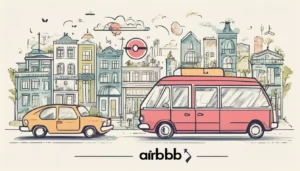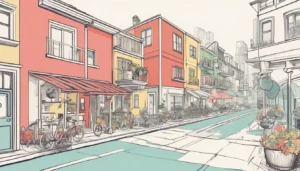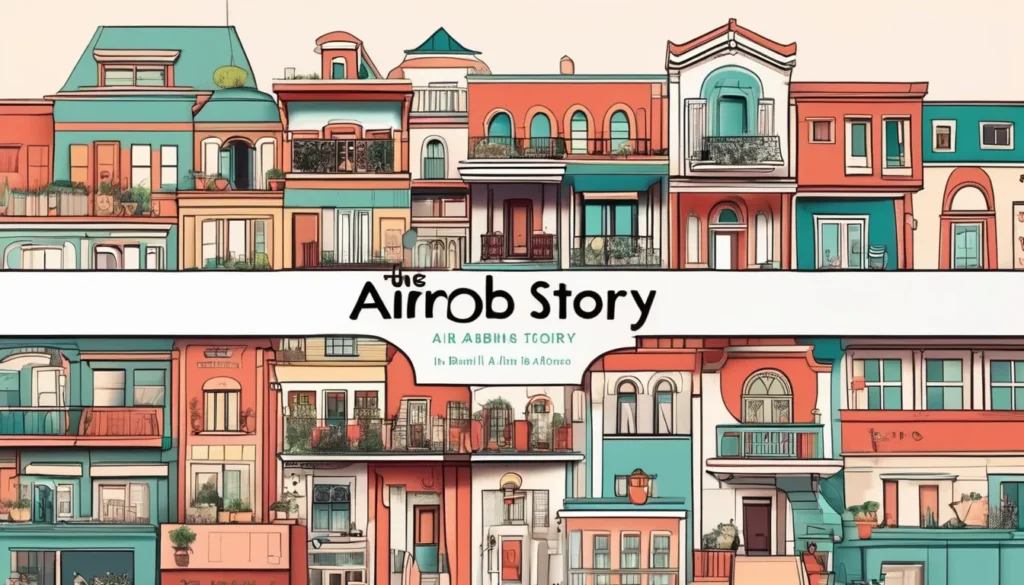Minimum Viable Product (MVP): The Airbnb Story
Airbnb is a prime example of how a startup may use the Minimum Viable Product (MVP) concept to test an idea before turning it into a fully-fledged business venture. Airbnb evolved from a modest rental condo idea to a global platform that altered the hospitality industry by starting small and focusing on essential features.
Table of Contents:
- Introduction
- A Minimum Viable Product (MVP) is…
- Airbnb’s Beginnings: A Basic MVP
- How Airbnb Proved Its Idea
- Identifying the Issue
- Air Mattresses in an Apartment: The Simple MVP
- Collecting User Input
- Airbnb Scaling: From MVP to Global Success
- Important Takeaways from Airbnb’s MVP Approach
- conclusion
-
Introduction:
Starting a new business can be intimidating, especially if the idea has not been tried and tested. This is where the concept of a Minimum Viable Product (MVP) is valuable. The journey of Airbnb, from an idea for an air bed rental service to a global platform for lodging, demonstrates the value of starting small and validating a concept before expanding. This article explores how Airbnb tested its idea using an MVP and the lessons other entrepreneurs might learn from their experience.
-
A Minimum Viable Product (MVP) is.
A Minimum Viable Product (MVP) is a product version that includes only the essential features required to test a business idea and gather feedback from early adopters. An MVP is designed to quickly and cost-effectively validate an idea, allowing entrepreneurs to make iterations based on real-world feedback before investing in a full-scale launch.
-
Airbnb’s Beginnings: A Basic MVP:
Brian Chesky and Joe Gebbia, co-founders of Airbnb, faced financial challenges in 2007 while renting out their San Francisco apartment. With all hotel rooms booked for an upcoming design conference, they saw an opportunity to let visitors rent air mattresses in their living room. This simple idea led to the creation of Airbnb. The initial concept was to use available space in homes to provide visitors with an affordable alternative to traditional accommodation. They launched a basic website called “Air Bed & Breakfast.”

-
How Airbnb Proved Its Idea:
- Identifying the Issue: Chesky and Gebbia identified a problem: conference attendees had difficulty finding affordable accommodations. They also recognized that many people had extra space in their homes that could be rented out for a profit. They aimed to address this market gap by connecting those with spare rooms to those in need of affordable lodging.
- Air Mattresses in an Apartment: The Simple MVP: Rather than developing a complex platform from the start, the founders focused on creating a simple MVP. They purchased three air mattresses, set them up in their living room, and advertised the space on their website. The objective was to test whether people would be willing to pay to stay in someone else’s home. The MVP’s simplicity allowed them to quickly validate their concept with minimal financial risk. Their first guests, three conference attendees, paid $80 each for a couple of nights. This early success gave them the confidence to further develop the idea.
-
Collecting User Input:
After launching their website, Chesky and Gebbia actively sought feedback from their users. They wanted to understand what worked, what didn’t, and how they could improve the experience. This feedback was invaluable in refining their product and shaping Airbnb’s future.

-
Airbnb Scaling: From MVP to Global Success:
Following the validation of their MVP, Airbnb’s founders enhanced their platform. They added features such as professional photos of listings, a rating system, and a secure payment method. These improvements increased user satisfaction and attracted more hosts and guests. As Airbnb grew, it continued to iterate on the platform based on user feedback and market demands. Today, Airbnb offers thousands of listings worldwide, ranging from private rooms to entire homes, and unique stays like treehouses and castles, and operates in over 220 countries.
-
Important Takeaways from Airbnb’s MVP Approach:
- Start Small: The Airbnb MVP was a simple, cost-effective solution that allowed the founders to test their ideas with minimal risk.
- Focus on Addressing a Real Need: By providing affordable lodging during a conference, Airbnb met a genuine market demand.
- Gather Feedback and Iterate: User feedback played a crucial role in the development of Airbnb’s platform. The founders continuously improved the service based on early users’ input.
- Be Willing to Adapt: Airbnb expanded beyond its initial MVP as it learned more about the market, evolving and scaling its platform accordingly.
-
Conclusion:
The journey of Airbnb, from renting out air mattresses to becoming a major player in the global hospitality market, highlights the importance of a well-executed MVP. Startups can effectively test their concepts and scale by starting with a simple, focused idea, gathering feedback, and iterating based on real-world insights. Airbnb’s story serves as a powerful reminder of the value of starting small and growing from there for entrepreneurs looking to tackle new challenges.
For more information on creating and growing MVPs, visit Lean Startup.
